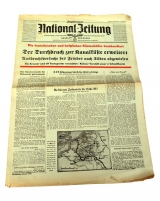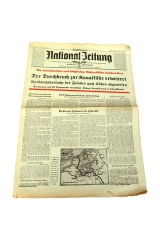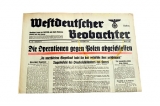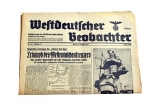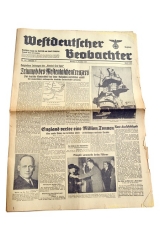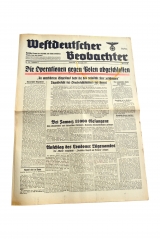Within weeks of taking power the Nazis were already manipulating the various media in order to stoke up fears of a Communist uprising, thus allowing for the party to introduce measures to rapidly curb individual civil liberties. This also allowed for party thugs to openly go on a rampage of state-sponsored terror in order to crack down on any potential opposition.
The Nazis established their own publishing house, under the directorship of Franz Eher. This was soon either openly buying out rival publications or setting up holding companies in order to acquire and control the wider media. Traditional right-wing leaning media was largely left alone, although they survived only due to adopting a system of self-censorship and publishing only party-approved topics.
Another means of assimilating the media was by evoking the Nuremberg Race Laws; thus it was possible to either close down or take over any publications, whose owners fell foul of these laws.
Below is an album with examples of Nazi-controlled newspapers; they cover a number of pivotal dates and events, most notably one reporting the German version of the Battle of the River Plate' where the damage to the Graf Spee is not only played down but the events are even presented with an air of victory.



